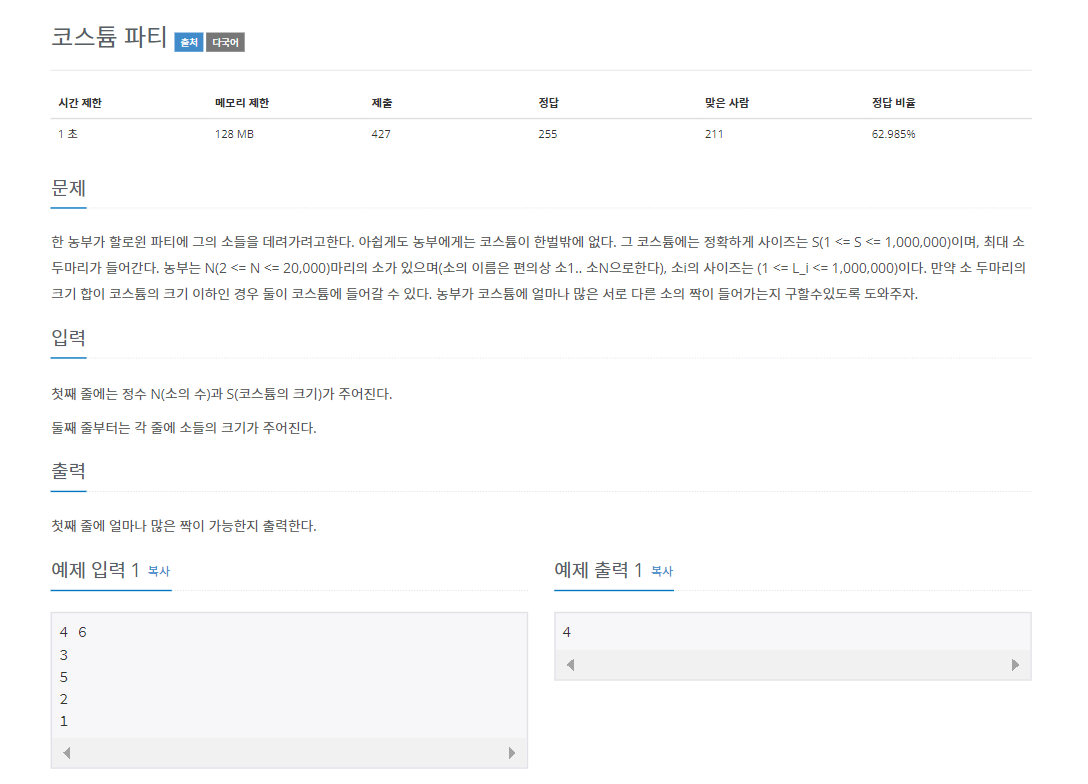백준

1. 투포인터
최적화
import sys
input = sys.stdin.readline
n, m = map(int,input().split())
array = [int(input()) for _ in range(n)]
array.sort()
count = 0
right = n - 1
for left in range(n):
if array[left] > m // 2:
break
while array[left] + array[right] > m:
right -= 1
count += right - left
print(count)
import sys
input = sys.stdin.readline
n, m = map(int,input().split())
array = [int(input()) for _ in range(n)]
array.sort()
count = 0
for left in range(n):
right = left + 1
while right < n:
if array[left] + array[right] <= m:
count += 1
right += 1
print(count)
2. JavaScript
const solution = (n, s, array) => {
let j = n - 1;
let count = 0;
array.sort((a, b) => a - b);
for (let i = 0; i < n; i++) {
if (array[i] > parseInt(s / 2)) break;
while (array[i] + array[j] > s) j -= 1;
count += j - i;
}
return count;
};
console.log(solution(4, 6, [3, 5, 2, 1]));
2. C++
#include <iostream>
#include <vector>
#include <algorithm>
using namespace std;
int main() {
int n, s;
vector<int> data;
cin >> n >> s;
for (int i = 0, temp = 0; i < n; i++) {
cin >> temp;
data.push_back(temp);
}
sort(data.begin(), data.end());
int j = n - 1;
int count = 0;
for (int i = 0; i < n; i++) {
if (data[i] > int(s / 2)) break;
while (data[i] + data[j] > s) j -= 1;
count += j - i;
}
cout << count;
}

